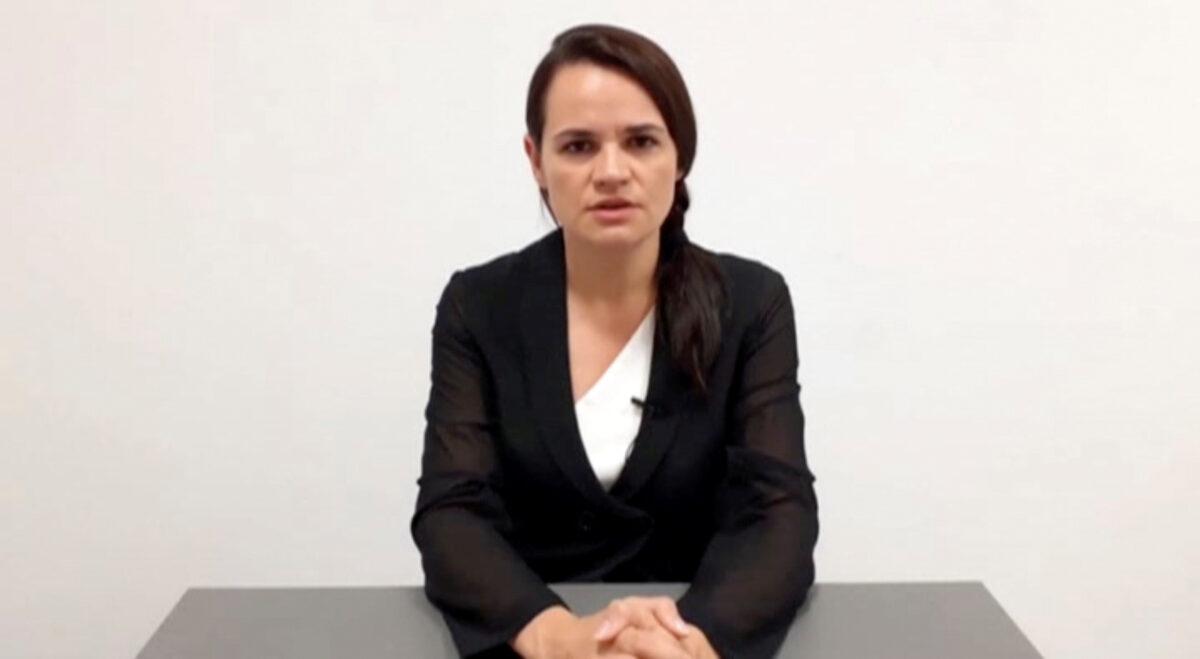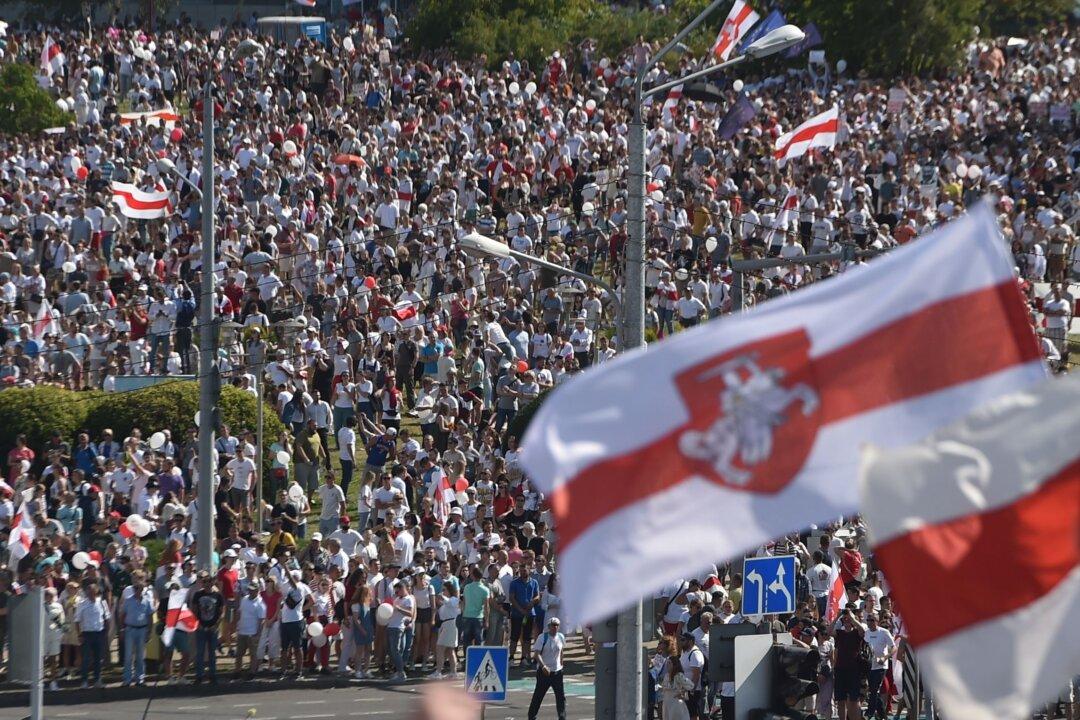British Foreign Secretary Dominic Raab on Monday said the UK does not accept the results of the Belarusian presidential election. Raab’s statement came as 200,000 Belarusians took to the streets of the country’s capital Minsk, demanding that Alexander Lukashenko, in power for 26 years, steps down as president.

Belarusian opposition politician Sviatlana Tsikhanouskaya addresses the nation in an unknown location in Lithuania, in an image taken from video released on Aug. 17, 2020. Sviatlana Tsikhanouskaya Headquarters/Handout via Reuters





